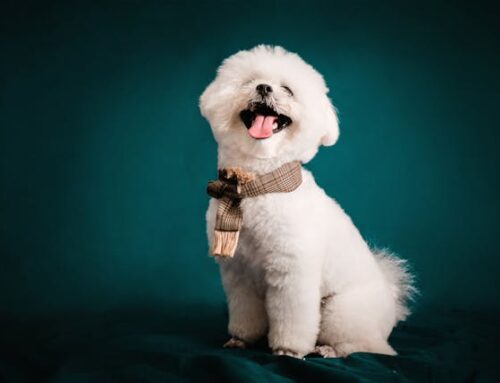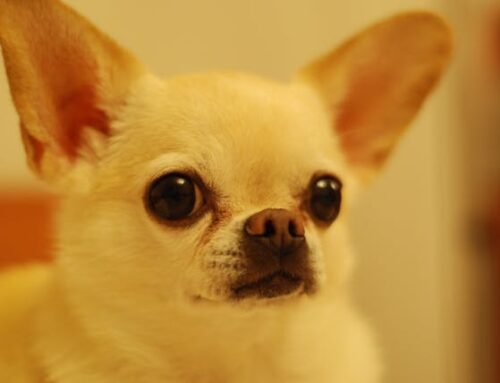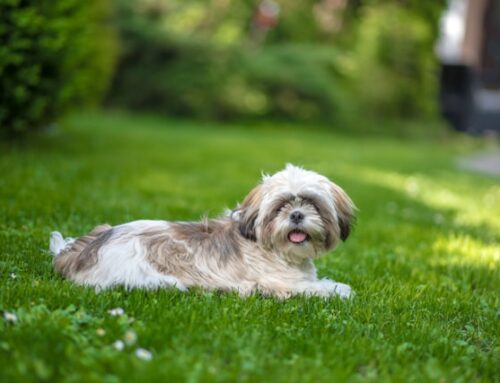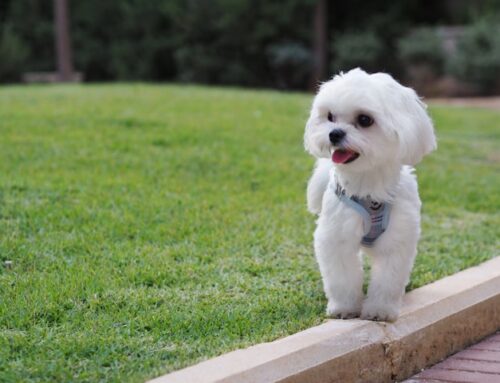Overview
Introduction: Silky Terrier vs Yorkie

Silky Terriers and Yorkshire Terriers, often affectionately referred to as “Silkies” and “Yorkies,” are two popular small dog breeds that have captured the hearts of dog lovers worldwide. Despite their similar names, these breeds have distinct differences in terms of appearance, temperament, and care requirements.
This article aims to provide a detailed comparison between Silky Terrier vs Yorkie, helping prospective dog owners make an informed decision when choosing between these two adorable breeds. Additionally, we will explore how these breeds compare to Australian Terriers, another popular breed in the small dog category, and discuss breed standards and their performance in the show ring.
Overview of Silky Terriers and Yorkies
Silky Terriers, also known as Australian Silky Terriers, and Yorkshire Terriers, or Yorkies, are two distinct but often confused terrier breeds. Silky Terriers originated in Australia, bred from crossing the Australian Terrier with the Yorkshire Terrier.
They are known for their elegant appearance, with silky blue and tan coats, and their playful yet independent nature. Yorkshire Terriers, on the other hand, originated in England and are characterized by their small size, silky blue and tan coats, and bold personalities. While both breeds make excellent companions, they have different temperaments and care requirements, making it important for potential owners to research and understand the specific needs of each breed, including their hypoallergenic qualities.
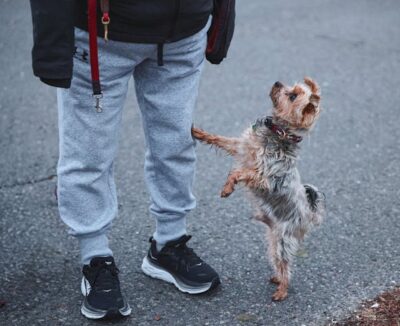
Purpose of the Comparison Article
The purpose of comparing Silky Terriers and Yorkies is to provide potential dog owners with a detailed understanding of the differences and similarities between these two popular terrier breeds. By examining their characteristics, temperaments, grooming needs, and health considerations, individuals can make an informed decision about which breed is the best fit for their lifestyle and preferences.
Additionally, understanding the history and purpose of each breed can offer insight into their behavior and suitability as family pets. Both Silky Terriers and Yorkies are popular pets and are commonly kept as household pets, making it essential for prospective owners to understand the unique traits of these two breeds before bringing one into their home.
History and Origins: Yorkie Vs Silky Terrier
Origins of Silky Terrier
The Silky Terrier, also known as the Australian Silky Terrier or Sydney Silky, has a rich history dating back to Australia in the early 19th century. Developed by crossing various terrier breeds, including the Yorkshire Terrier and the Australian Terrier, the Silky Terrier was bred for its keen hunting skills and ability to control vermin.
The breed’s name reflects its distinctive silky coat, which is a defining feature. Today, the Silky Terrier is recognized as one of the most popular breeds, known for its lively demeanor and affectionate nature. The American Kennel Club (AKC) officially recognized the Silky Terrier in 1955. Due to its lineage, the Silky Terrier is closely related to the Australian Terrier, sharing similar traits and characteristics.
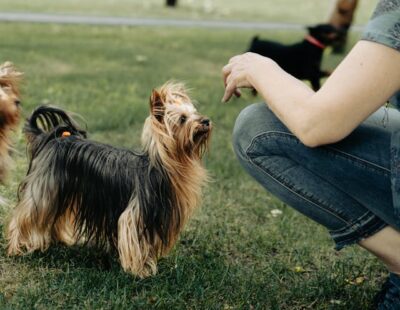
Origins of Yorkshire Terrier
The Yorkshire Terrier, often referred to as the Yorkie, has a fascinating history originating from northern England. Bred as a ratting dog in the mid-19th century, Yorkies were used to control vermin in mines and cotton mills. They quickly became popular as companion dogs for the upper class due to their charming appearance and affectionate nature.
The breed’s diminutive stature and elegant appearance led to its recognition as one of the most popular toy breeds. The first Yorkshire Terrier to be officially recognized was Huddersfield Ben, setting the standard for the breed. The American Kennel Club (AKC) recognized the Yorkshire Terrier in 1885, and since then, Yorkies have been a common sight in the show ring, where their distinctive appearance and lively demeanor make them stand out among other breeds.
Appearance: Silky Terrier vs Yorkie
Physical Characteristics of Silky Terrier
Silky Terriers are small to medium-sized dogs, typically weighing between 8 to 11 pounds and standing about 9 to 10 inches tall at the shoulder. One of their most distinctive features is their silky coat, which is straight, fine, and falls evenly down the sides of their body.
They have small, v-shaped ears that stand erect and add to their alert and intelligent expression. Overall, Silky Terriers are elegant and well-proportioned dogs with a confident and lively demeanor. Their silky coats require regular grooming to maintain their luxurious appearance. The Silky Terrier size is ideal for families looking for a small to medium-sized dog that is both stylish and adaptable.

Physical Characteristics of Yorkshire Terrier
Yorkshire Terriers, or Yorkies, are small dogs with a compact and well-proportioned body. They typically weigh between 4 to 7 pounds and stand about 7 to 8 inches tall at the shoulder. One of their most notable features is their long, flowing coat, which is silky and straight.
Yorkies have a small head with a flat skull and a medium-length muzzle. Overall, they are elegant and confident dogs with a lively and inquisitive demeanor. The Yorkie’s coat is a defining characteristic that requires regular grooming to maintain its beauty and health.
Comparison of Size, Coat, and Color
When comparing Silky Terriers and Yorkies, one noticeable difference is in their size, with Silky Terriers being slightly larger than Yorkies. Silky Terriers have a slightly longer muzzle compared to Yorkies, and their coats are typically longer, straight, and silky in texture.
In contrast, Yorkies have long coats that are born black and gradually transition to a blue and tan color as they mature. Both breeds come in many shades of blue and tan, with the silky coat of the Silky Terrier and the hair of the Yorkie requiring regular grooming to maintain their appearance.

Temperament: Silky Terrier vs Yorkie
Temperament Traits of Australian Silky Terrier
The temperament of the Australian Silky Terrier, often referred to as the Silky Terrier, is characterized by its lively and affectionate nature. Silky Terriers are known for their loyalty and devotion to their families, often forming strong bonds with their owners.
However, they can also exhibit signs of separation anxiety if left alone for extended periods. Additionally, Silky Terriers may become defensive if they feel threatened, showcasing their protective instincts. Overall, with proper socialization and training, Silky Terriers make loving and spirited companions.
Temperament Traits of Yorkshire Terrier
Yorkshire Terriers, or Yorkies, are known for their bold and confident temperament despite their small size. They are affectionate and thrive on attention, often forming strong bonds with their owners. Yorkies are energetic and playful, enjoying interactive games and activities. They can also be quite vocal, often barking to alert their owners of potential threats. Overall, Yorkies are spirited and loving companions that bring joy to their families.
Contrasting Behavior Tendencies
Yorkies and Silky Terriers exhibit contrasting behavior tendencies despite their similarities in size and appearance. While Yorkies are known for their bold and confident nature, Silky Terriers are often more reserved and cautious, especially in new environments.
Yorkies tend to be more vocal and alert, whereas Silky Terriers are generally quieter and more laid-back. Additionally, Yorkies may be more prone to separation anxiety, whereas Silky Terriers are known for their independence.
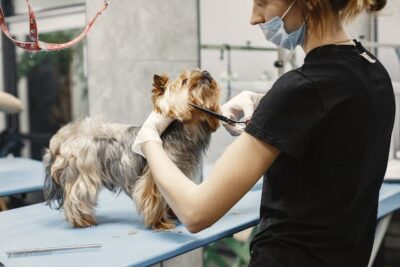
Grooming Needs: Silky Terrier vs Yorkie
Grooming Requirements for Silky Terrier
Silky Terriers have a luxurious coat that requires regular grooming to maintain its silky texture and prevent matting. Weekly brushing is recommended to remove loose hair and prevent tangles.
Additionally, regular baths with a mild dog shampoo can help keep the Silky Terrier’s coat clean and healthy. It’s important to pay special attention to the Silky’s coat to ensure it remains soft and silky.
Grooming Needs of Yorkshire Terrier
Yorkshire Terriers, or Yorkies, have a long, flowing coat that requires regular grooming to keep it healthy and free of tangles. Daily brushing is recommended to prevent matting, especially if the hair is allowed to grow to floor length. Regular baths with a mild dog shampoo can help keep the hair clean and manageable.
Comparison of Grooming Difficulty and Frequency
When comparing grooming difficulty and frequency between Yorkies and Silky Terriers, both breeds require regular grooming due to their long hair. However, the Silky Terrier’s coat tends to be longer and silkier, requiring more frequent brushing to prevent matting.
Additionally, Silky Terriers have a scissors bite, which means their upper teeth closely overlap their lower teeth, requiring careful attention to dental hygiene. On the other hand, Yorkies may require more frequent trimming of their long hair to maintain a tidy appearance.

Exercise and Activity Levels: Silky Terrier vs Yorkie
Exercise Requirements for Silky Terrier
Silky Terriers have moderate exercise requirements and enjoy daily walks and playtime. They are lively and energetic but can adapt to apartment living with daily exercise. Interactive toys and games can help keep Silky Terriers mentally and physically stimulated.
Activity Needs of Yorkshire Terrier
Yorkshire Terriers, or Yorkies, have moderate exercise needs and enjoy daily walks and play sessions. They are energetic and playful but can also be content with indoor activities. Yorkies benefit from mental stimulation, so engaging them in interactive games and training sessions is important for their overall well-being.
Contrasting Energy Levels and Exercise Preferences
When comparing Yorkies and Silky Terriers, their energy levels and exercise preferences differ. Yorkies are known for their high energy levels and playful nature, often enjoying active play sessions and outdoor adventures.
In contrast, Silky Terriers tend to be more moderate in their energy levels, preferring a balanced mix of playtime and relaxation. While both breeds benefit from daily exercise, Yorkies may require more vigorous activities to meet their energetic needs, while Silky Terriers may be content with moderate exercise.
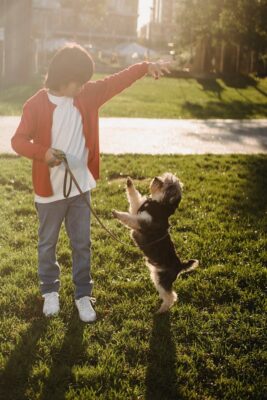
Trainability: Silky Terrier vs Yorkie
Trainability Traits of Silky Terriers
Silky Terriers are generally considered to be moderately easy to train, especially when it comes to house training. They are intelligent and eager to please, making them responsive to positive reinforcement training methods. With consistent training and patience, Silky Terriers can become well-behaved companion dog.
Trainability Traits of Yorkshire Terriers
Yorkshire Terriers, or Yorkies, are known for their intelligence and can be relatively easy to house train. They respond well to positive reinforcement and consistency in training methods. With patience and proper training, Yorkies can become well-behaved companion dogs.
Comparison of Ease of Training and Responsiveness to Commands
When comparing Yorkies and Silky Terriers, both breeds are generally responsive to training, but Yorkies are often considered easier to train due to their high intelligence and eagerness to please. They tend to pick up commands quickly and are relatively easy to house train. Silky Terriers, while still trainable, may require more patience and consistency in training due to their independent nature.
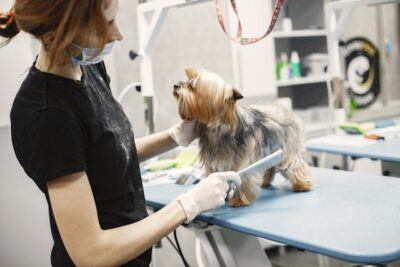
Health Considerations: Silky Terrier vs Yorkie
Common Health Issues in Silky Terrier
Silky Terriers are generally healthy dogs, but like all breeds, they are prone to certain health issues. Some common health issues in Silky Terriers include patellar luxation, Legg-Calve-Perthes disease, and tracheal collapse. Regular veterinary check-ups and a healthy lifestyle can help prevent or manage these health issues in Silky Terriers.
Common Health Issues in Yorkshire Terrier
Yorkshire Terriers, or Yorkies, are generally healthy dogs, but they are prone to certain health issues, including patellar luxation, Legg-Calve-Perthes disease, and tracheal collapse. Their wedge-shaped head can sometimes contribute to dental issues, such as overcrowding of teeth. Regular veterinary check-ups and proper dental care can help prevent or manage these health issues in Yorkies.
Differences in Health Concerns and Longevity
When comparing Yorkies and Silky Terriers, Yorkies are slightly bigger and have a longer lifespan, typically living between 12 to 15 years, while Silky Terriers usually live between 12 to 14 years. Both breeds are prone to certain health issues, but Silky Terriers may be more susceptible to patellar luxation and Legg-Calve-Perthes disease, while Yorkies may be more prone to dental problems due to their wedge-shaped heads. Regular veterinary care and a healthy lifestyle can help ensure both breeds live long and healthy lives.

Living Requirements: Silky Terrier vs Yorkie
Ideal Living Conditions for Silky Terrier
Silky Terriers are adaptable dogs that can thrive in various living conditions, including apartments and houses with yards. They are moderately active indoors and will benefit from daily walks and playtime. A secure outdoor area is recommended for them to explore safely, but they should not be left alone for extended periods as they thrive on companionship.
Ideal Living Conditions for Yorkshire Terrier
Yorkshire Terriers, or Yorkies, are well-suited for apartment living and can thrive in small spaces. They are active indoors and will benefit from daily walks and playtime. A secure outdoor area is ideal for them to explore safely, but they should not be left alone for long periods as they enjoy human companionship.
Contrasting Adaptability to Various Environments
When comparing Yorkies and Silky Terriers, both breeds are adaptable to various environments, but Yorkies may be slightly more adaptable to apartment living due to their smaller size. Silky Terriers, while also adaptable, may prefer a home with a yard where they can explore and play.
Both breeds thrive on human companionship and should not be left alone for long periods regardless of the living environment.
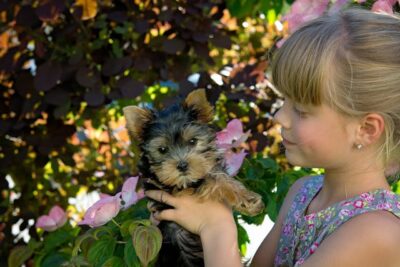
Compatibility with Children and Other Pets: Silky Terrier vs Yorkie
Behavior of Silky Terrier with Children and Other Pets
Silky Terriers are known for their friendly and affectionate nature, making them generally good with children and other pets when properly socialized. They enjoy playing and interacting with children, but supervision is always recommended to ensure both the dog and child are safe.
With early socialization, Silky Terriers can coexist well with other pets, although they may exhibit some territorial behavior.
Interaction of Yorkshire Terrier with Kids and Other Animals
Yorkshire Terriers, or Yorkies, can interact well with both small and older children when properly socialized. They are playful and energetic, enjoying interactive games and activities. With gentle handling and supervision, Yorkies can also get along with other animals, although they may exhibit some assertive behavior due to their terrier instincts.
Comparison of Friendliness and Compatibility
When comparing Yorkies and Silky Terriers, both breeds are known for their friendliness and compatibility as indoor dogs. Yorkies are great companions known for their affectionate nature, while Silky Terriers are also affectionate and enjoy being part of the family.
Both breeds thrive on human companionship and make great indoor pets for individuals or families looking for a loving and loyal companion. Understanding the similarities and differences between Silky Terrier vs Yorkie can help you decide which breed is the best fit for your home.

Cost of Ownership: Silky Terrier vs Yorkie
Initial Costs of Acquiring a Silky Terrier
The initial costs of acquiring a Silky Terrier include the purchase price from a reputable breeder, which can range from $500 to $1500 or more depending on the pedigree and breeder reputation.
Additionally, initial costs may include vaccinations, which can range from $75 to $100, and spaying or neutering, which can cost between $200 to $500. Grooming supplies for maintaining the Silky Terrier’s coat, such as brushes and shampoos, should also be considered.
Initial Costs of Acquiring a Yorkshire Terrier
The initial costs of acquiring a Yorkie include the purchase price from a reputable breeder, which can range from $800 to $10,000 or more depending on the pedigree and breeder reputation.
Additionally, initial costs may include vaccinations, which can range from $75 to $100, and spaying or neutering, which can cost between $200 to $500. Other initial expenses may include grooming supplies, a crate, bedding, and food and water dishes.

Ongoing Expenses and Maintenance Costs
When comparing Yorkies and Silky Terriers, both breeds require ongoing expenses and maintenance costs. This includes regular veterinary check-ups, which can cost between $50 to $100 per visit, and yearly vaccinations, which can range from $75 to $100.
Additionally, grooming costs for both breeds should be considered, as their coats require regular grooming to maintain their appearance and health. Understanding these factors can help prospective owners make an informed decision when choosing between Silky Terrier vs Yorkie.
Conclusion: Silky Terrier vs Yorkie
In conclusion, both Silky Terriers and Yorkshire Terriers are wonderful dog breeds that make loyal and loving companions. While they share some similarities, such as their small size and playful nature, they also have distinct differences in terms of grooming needs, temperament, and exercise requirements. If you’re considering between Silky Terrier vs Yorkie, it’s important to research and understand these differences to find the right fit for your lifestyle and preferences.
It’s important to consider your lifestyle and preferences when choosing between these two breeds to ensure you find the perfect furry friend for your family. If you’re interested in bringing a Yorkshire Terrier into your home, check out our selection of thoughtfully bred and raised Yorkie puppies for sale in Georgia and surrounding areas.
Frequently Asked Questions (FAQs): Silky Terrier vs Yorkie
- Which breed is easier to groom, the Silky Terrier or the Yorkie?
- One point of difference between the two breeds is their grooming needs. While both breeds have a silky coat, the Silky Terrier’s coat is longer and may require more frequent grooming to maintain its appearance. On the other hand, the Yorkie’s coat is typically shorter and may be easier to manage.
- Are Silky Terriers and Yorkies good with children?
- Both the Silky Terrier and the Yorkie can be good family pets and are generally good with small children. However, it’s important to supervise interactions between the dogs and young children to prevent any accidental rough play.
- Do Silky Terriers and Yorkies get along with other dogs?
- Both breeds are known for their friendly nature and can get along well with other dogs if properly socialized. However, as with any breed, early socialization is key to ensuring they develop good behavior around other dogs.
- Which breed is better for first-time dog owners, the Silky Terrier or the Yorkie?
- Both the Silky Terrier and the Yorkie can make great dogs for first-time dog owners. They are small, easy to manage, and generally good-natured. However, it’s important to consider their grooming needs and exercise requirements before making a decision.
- Are Silky Terrier and Yorkie puppies easy to train?
- Both Silky Terrier and Yorkie puppies are intelligent and eager to please, which can make them relatively easy to train. Consistent training methods and positive reinforcement are key to successfully training these breeds.
- Which breed is healthier, the Silky Terrier or the Yorkie?
- Both the Silky Terrier and the Yorkie are generally healthy breeds, but they may be prone to certain health issues. Regular veterinary check-ups, a healthy diet, and regular exercise can help keep both breeds in good health.
- Do Silky Terriers or Yorkies make good watchdogs?
- Both breeds are known for their alertness and may make good watchdogs. However, their small size means they are not suitable for guarding purposes. They are more likely to alert their owners to potential dangers with their barking than to actually protect against them.
- Are Silky Terriers or Yorkies good for apartment living?
- Both the Silky Terrier and the Yorkie are small dogs that can adapt well to apartment living. They require regular exercise and mental stimulation, but their size makes them well-suited for living in smaller spaces.

